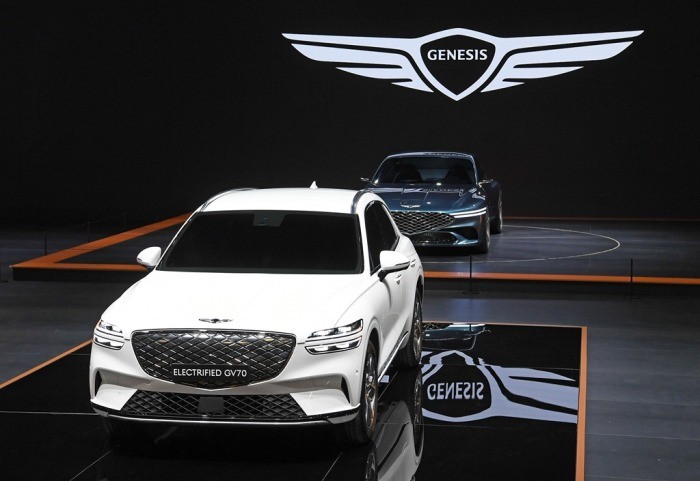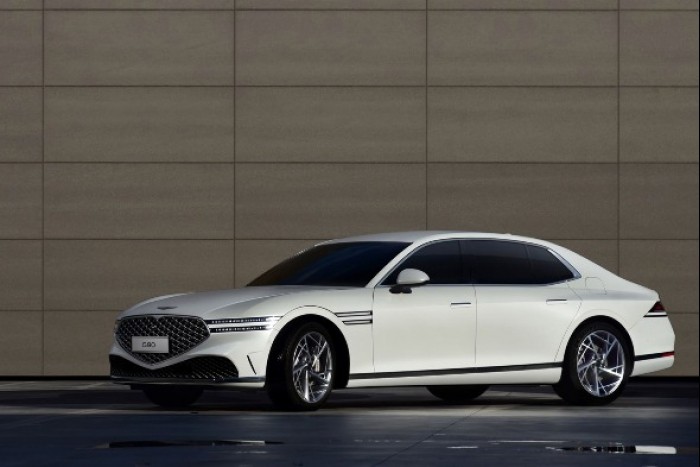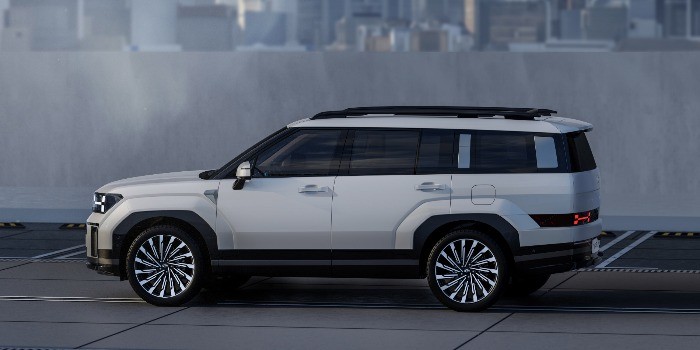The automotive industry is witnessing a fascinating pivot as consumer demand and market dynamics evolve. Hyundai Motor Group, including its luxury brand Genesis, is reportedly recalibrating its electric vehicle (EV) strategy to incorporate plug-in hybrid models. This shift comes in response to a cooling enthusiasm for all-electric vehicles and a growing recognition of the strategic role hybrids can play in bridging the gap.
Sources within the automotive industry revealed on Tuesday that Genesis is actively developing hybrid powertrains, with the first Genesis hybrid variant expected as early as next year. This move signifies a departure from Hyundai’s initial ambitious plan to transition the entire Genesis lineup to EVs by 2025. The cooling EV market, observed since the latter half of last year, has prompted major global automakers like General Motors, Ford, Stellantis, and Volkswagen to reconsider their EV-centric strategies, delaying investments and development timelines.
 Genesis Electrified GV70 Luxury Electric SUV
Genesis Electrified GV70 Luxury Electric SUV
The first Genesis hybrid is rumored to feature a robust 2.5-liter engine, a step up in size compared to the 1.6-liter engine found in Kia’s Carnival hybrid. Popular Genesis models like the G80 sedan and GV70 SUV are likely candidates to receive these hybrid powertrains first. Interestingly, US Genesis dealerships have reportedly urged Hyundai to introduce a Genesis plug-in hybrid model, acknowledging the specific appeal of plug-in technology in the North American market. While Hyundai is considering plug-in hybrid options for the Genesis brand, a definitive decision on development is still pending. This hesitation suggests a careful evaluation of market demand and technological feasibility for Genesis plug-in hybrid vehicles.
Currently, Genesis offers three EV models: the Electrified G80 and Electrified GV70, which are electric versions of their combustion engine counterparts, and the GV60, built on Hyundai’s dedicated EV platform, E-GMP. In 2023, Genesis experienced a slight dip in EV sales, selling 18,759 units compared to 18,846 the previous year, even as overall sales slightly increased. This trend further underscores the rationale behind diversifying into hybrid and potentially plug-in hybrid offerings.
 Genesis G90 Full-Size Luxury Sedan
Genesis G90 Full-Size Luxury Sedan
Beyond Genesis, Hyundai and Kia are also expanding their hybrid lineups. Flagship models like the Hyundai Palisade SUV, Santa Fe SUV, and Staria minivan are slated to receive hybrid variants. Kia will also introduce a hybrid version of the Seltos compact SUV next year. This broader hybrid strategy across both brands indicates a group-wide recognition of the growing importance of hybrid technology in the current automotive landscape.
The increasing popularity of hybrids is evident in sales figures. Hyundai’s global hybrid sales accounted for 10.6% of total sales in the fourth quarter of last year, a significant rise from 7.1% in the same period the previous year. Conversely, the proportion of EV sales slightly decreased. Kia also reported a substantial 51% surge in US hybrid sales last month, with Hyundai’s plug-in hybrid sales also experiencing a healthy 41% increase.
 Hyundai Santa Fe 5th Generation SUV Released 2023
Hyundai Santa Fe 5th Generation SUV Released 2023
Hybrid vehicles offer a compelling combination of improved fuel efficiency and reduced emissions compared to traditional combustion engine cars. For automakers, hybrids also present a financially attractive option with potentially higher profit margins and reduced reliance on subsidies compared to EVs. Toyota, a leader in hybrid technology, sold 3.4 million hybrid vehicles last year, marking a 31% increase, highlighting the robust market demand for hybrids.
Industry experts suggest that the delayed widespread adoption of EVs has positioned hybrid cars as a leading technology in the global car market. The ability to quickly introduce competitive hybrid models is becoming a crucial factor for automakers seeking to thrive in this evolving market. For Genesis, the potential introduction of plug-in hybrid models, particularly in response to dealer requests, could be a strategic move to capture a broader segment of the luxury automotive market, appealing to customers who desire both electric driving capabilities and the range confidence of a gasoline engine.

